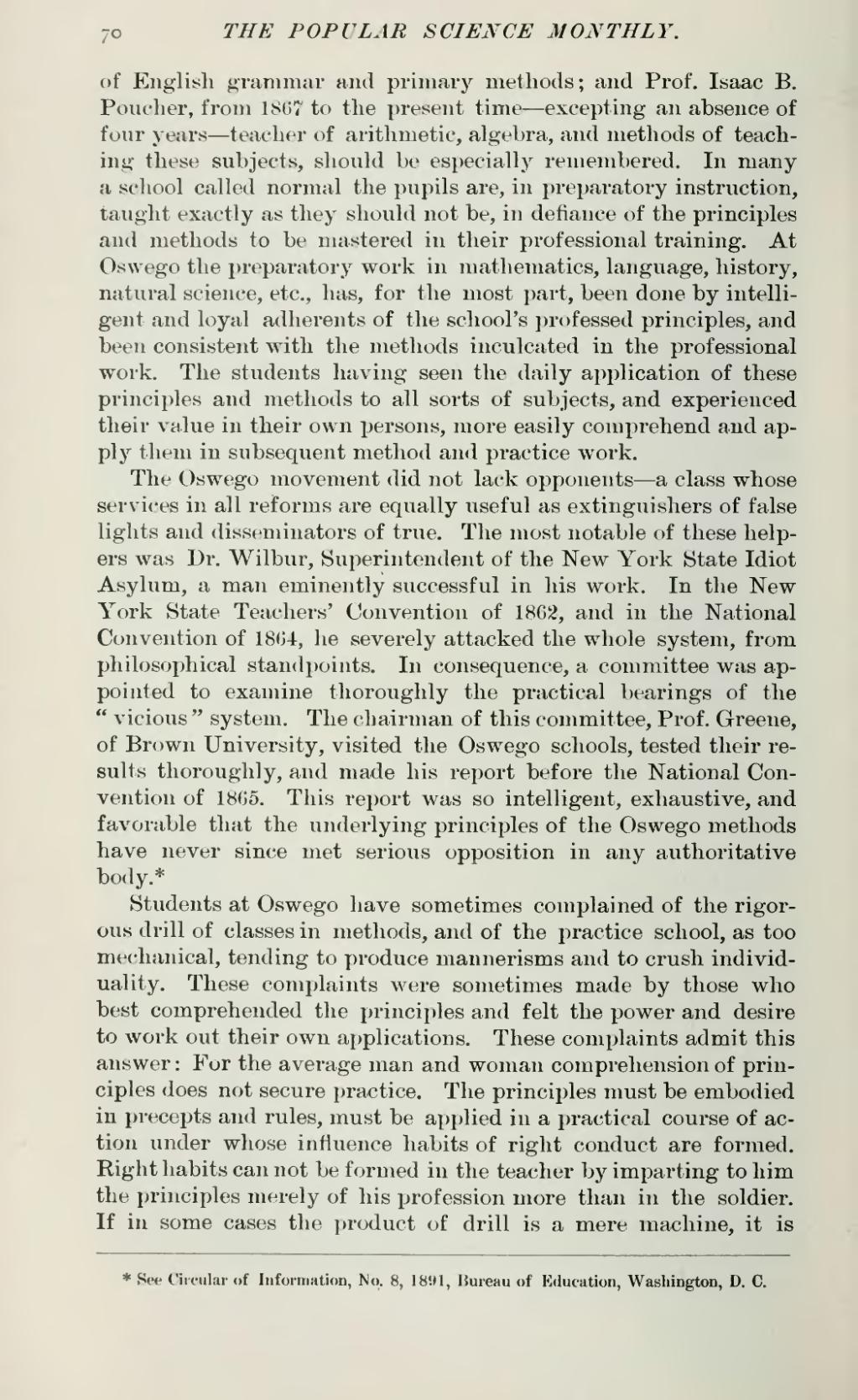of English grammar and primary methods; and Prof. Isaac B. Poucher, from 1867 to the present time—excepting an absence of four years—teacher of arithmetic, algebra, and methods of teaching these subjects, should be especially remembered. In many a school called normal the pupils are, in preparatory instruction, taught exactly as they should not be, in defiance of the principles and methods to be mastered in their professional training. At Oswego the preparatory work in mathematics, language, history, natural science, etc., has, for the most part, been done by intelligent and loyal adherents of the school's professed principles, and been consistent with the methods inculcated in the professional work. The students having seen the daily application of these principles and methods to all sorts of subjects, and experienced their value in their own persons, more easily comprehend and apply them in subsequent method and practice work.
The Oswego movement did not lack opponents—a class whose services in all reforms are equally useful as extinguishers of false lights and disseminators of true. The most notable of these helpers was Dr. Wilbur, Superintendent of the New York State Idiot Asylum, a man eminently successful in his work. In the New York State Teachers' Convention of 1862, and in the National Convention of 1864, he severely attacked the whole system, from philosophical standpoints. In consequence, a committee was appointed to examine thoroughly the practical bearings of the "vicious" system. The chairman of this committee. Prof. Greene, of Brown University, visited the Oswego schools, tested their results thoroughly, and made his report before the National Convention of 1865. This report was so intelligent, exhaustive, and favorable that the underlying principles of the Oswego methods have never since met serious opposition in any authoritative body.[1]
Students at Oswego have sometimes complained of the rigorous drill of classes in methods, and of the practice school, as too mechanical, tending to produce mannerisms and to crush individuality. These complaints were sometimes made by those who best comprehended the principles and felt the power and desire to work out their own applications. These complaints admit this answer: For the average man and woman comprehension of principles does not secure practice. The principles must be embodied in precepts and rules, must be applied in a practical course of action under whose influence habits of right conduct are formed. Right habits can not be formed in the teacher by imparting to him the principles merely of his profession more than in the soldier. If in some cases the product of drill is a mere machine, it is
- ↑ See Circular of Information, No. 8, 1891, Bureau of Education, Washington, D. C.
